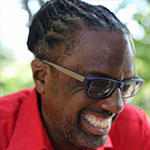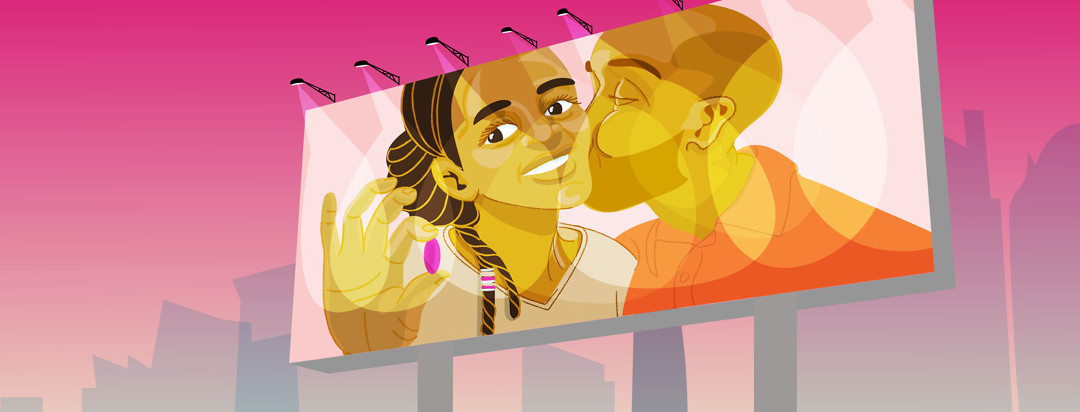Uplifting Black Voices: Ways to Better Improve Access to HIV Care and PrEP
According to the Centers for Disease Control and Prevention (CDC), HIV diagnoses in Black people/African Americans decreased 7 percent between 2014 and 2018. However, the most recent data from the CDC shows that African Americans still account for a larger number of new HIV diagnoses compared to other races and ethnicities in the United States.1
Although Black people/African Americans make up 13 percent of the U.S. population, they accounted for 42 percent of 37,968 new HIV diagnoses in 2018. There are many factors that contribute to these staggering statistics. In this piece, we want to explore differences in access to HIV prevention and care.1
The impact of barriers to access
PrEP awareness and use
In addition to condoms, antiretroviral pre-exposure prophylaxis (PrEP) is used in HIV prevention. When taken regularly, PrEP reduces the risk of acquiring HIV by more than 90 percent. For people who inject drugs, the risk is reduced by more than 70 percent. However, research points to differences in how PrEP is used by race/ethnicity.2
For example, a 2019 Morbidity and Mortality Weekly Report (MMWR) showed that in a group of men who have sex with men (MSM), awareness of PrEP was high for all race/ethnicity groups compared to previous years. However, Black MSM were less likely to be aware of PrEP, speak to their doctors about PrEP, or use PrEP within the last year compared with white MSM.3
Access to care
There are also differences in health outcomes for people who are HIV-positive. In the United States, 13 percent of all women are Black. However, 59 percent of women living with HIV are Black.4
Plus, Black women are 10 times more likely to die from AIDS-related complications. In a 2019 study on barriers to accessing care, HIV-related and race-related discrimination greatly impacted access to HIV care.4
Given what is known about barriers to care, we wanted to get the thoughts of H-I-V.net community advocates. We asked, "In your opinion, what are some ways we can improve access to PrEP and HIV care for the Black community?"
Improving access to PrEP and HIV care
 "Some ways we can improve access to PrEP would be to advocate about it more. I am now seeing many more PrEP ads, but what I am not seeing is PrEP ads for women. And I am guilty of not speaking about it for our Black women, especially since we are the highest rate of new diagnosis among women. It is a must to talk about it. As far as access to HIV care in the Black community, each state should have a plan in place to fix this, but we have been waiting for this to happen for many years. We face so many barriers that prevent access to care, but HIV is a social justice issue and a public health issue – we have to address the disparities in healthcare in Black and Brown people." – Dee
"Some ways we can improve access to PrEP would be to advocate about it more. I am now seeing many more PrEP ads, but what I am not seeing is PrEP ads for women. And I am guilty of not speaking about it for our Black women, especially since we are the highest rate of new diagnosis among women. It is a must to talk about it. As far as access to HIV care in the Black community, each state should have a plan in place to fix this, but we have been waiting for this to happen for many years. We face so many barriers that prevent access to care, but HIV is a social justice issue and a public health issue – we have to address the disparities in healthcare in Black and Brown people." – Dee
 "Improving access to PrEP and HIV care in the Black community comes with many challenges. In my opinion, there continues to be a low uptake on PrEP in the Black community because many are not hearing the messages through television advertising. Many believe that accessing PrEP is out of reach for them. We have to do a much better job of creating community-wide awareness campaigns that take a longer time at both explaining what PrEP is but also how to access PrEP for those who do not have healthcare and a regular healthcare provider. We need to educate the Black community on the fact that PrEP is 1 additional tool for HIV prevention. When it comes to improving access the care in the Black community, we have to continue to combat the HIV-related stigma that continues to fuel the lack of testing, the desire to see a provider, and adherence to treatment." – Khafre
"Improving access to PrEP and HIV care in the Black community comes with many challenges. In my opinion, there continues to be a low uptake on PrEP in the Black community because many are not hearing the messages through television advertising. Many believe that accessing PrEP is out of reach for them. We have to do a much better job of creating community-wide awareness campaigns that take a longer time at both explaining what PrEP is but also how to access PrEP for those who do not have healthcare and a regular healthcare provider. We need to educate the Black community on the fact that PrEP is 1 additional tool for HIV prevention. When it comes to improving access the care in the Black community, we have to continue to combat the HIV-related stigma that continues to fuel the lack of testing, the desire to see a provider, and adherence to treatment." – Khafre
 "I believe that one way we can improve access is by normalizing the conversations of sex and pleasure and bring that together with healthcare, for starters. Another way is to be intentional in creating leadership spaces for Black people to be the facilitators, decision-makers, and educators of making sure the resources get to our communities. More tangible actions are CBOs (community-based organizations) that can offer extended-hour testing and have testing sites attached to urgent care clinics that have extended hours, including weekends. Adapting the access to our care to our lives and the ways we move in society without tokenizing our safe spaces (hair salons, barbershops, etc.,) would go a long way. Access should not just follow the data or funding trends. Being proactive in collecting data instead of waiting for funding to come through is a disservice to every community and shortchanges public health. Also, expand Medicaid." – Kamaria
"I believe that one way we can improve access is by normalizing the conversations of sex and pleasure and bring that together with healthcare, for starters. Another way is to be intentional in creating leadership spaces for Black people to be the facilitators, decision-makers, and educators of making sure the resources get to our communities. More tangible actions are CBOs (community-based organizations) that can offer extended-hour testing and have testing sites attached to urgent care clinics that have extended hours, including weekends. Adapting the access to our care to our lives and the ways we move in society without tokenizing our safe spaces (hair salons, barbershops, etc.,) would go a long way. Access should not just follow the data or funding trends. Being proactive in collecting data instead of waiting for funding to come through is a disservice to every community and shortchanges public health. Also, expand Medicaid." – Kamaria

Join the conversation